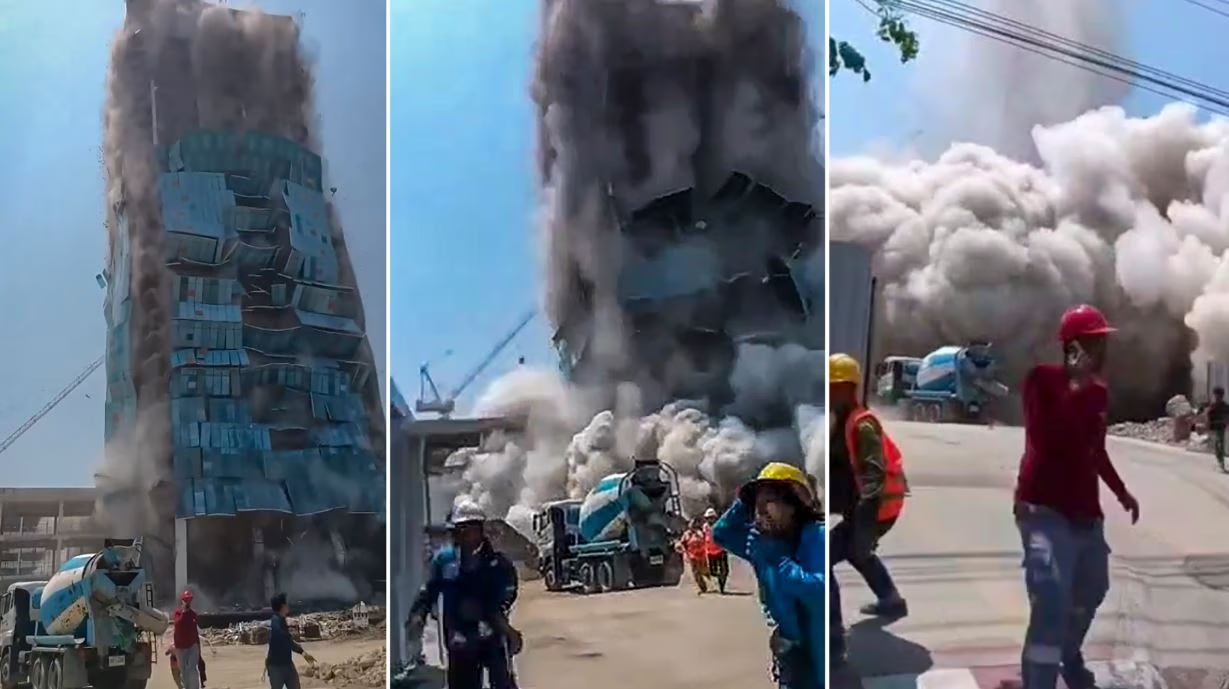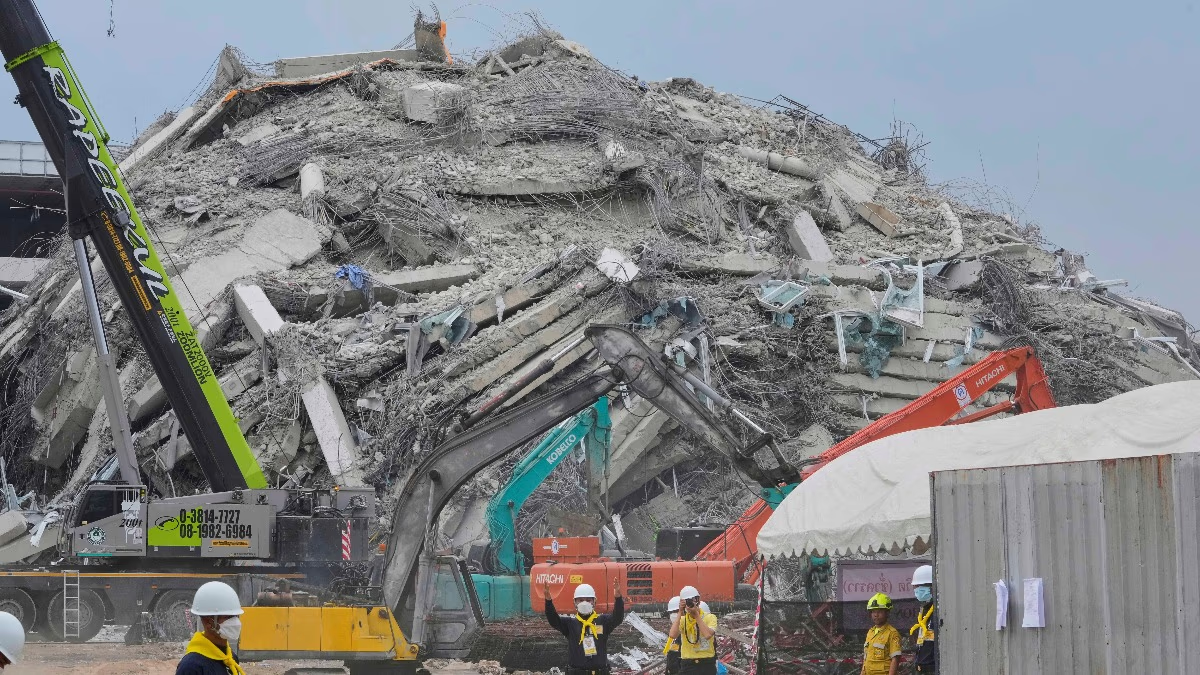The devastating earthquake in Myanmar on Friday reverberated through Thailand, leaving a 33-story building in Bangkok crumbled to the ground within seconds. With a magnitude of 7.7 on the Richter scale, the quake triggered the Thai government to launch an investigation into a Chinese-supported construction firm. Tragically, 17 individuals were buried under the debris, with 32 others injured, while 83 workers remain missing.
Construction Practices Under Scrutiny
Bangkok, Thailand's capital, is home to numerous towering structures, yet none suffered any damage during the earthquake save for this one. The collapse has raised eyebrows about the project's integrity. Commissioned by Thailand's State Audit Office (SAO) three years ago, the building was slated to cost over two billion baht (£45 million).
Meanwhile, Thai Deputy Prime Minister Anutin Charnvirakul visited the collapsed site a day post its downfall, stressing the urgency to dissect the catastrophe for insights. He remarked via Telegraph, 'An investigative committee is being appointed, tasked with reporting within seven days on the collapse's cause.'
Theft of Crucial Documents
In a twist, four Chinese nationals have been detained for pilfering 32 documents from the toppled building. Bangkok's governor has declared the location a disaster area, restricting access solely to authorized personnel. As reported by The Telegraph, the SAO project was a collaborative venture between Italian-Thai Development PLC (ITD) and China Railway No. 10 (Thailand) Co., a subsidiary of China Railway No. 10 Engineering Group, which maintained a 49% stake, the maximum foreign ownership threshold under Thai law.

Source: aajtak
Founded in 2018, China Railway No. 10 (Thailand) emerged as a contractor for major infrastructure projects, including office buildings, railways, and public roads. By 2023, the company reported a loss of 199.66 million baht against a revenue of 206.25 million baht, culminating in total expenses of 354.95 million baht. Note that Thailand's official currency is the Thai baht (THB).
Were Standards Compromised?
According to Reuters, the tower was initially targeted for completion by 2026, running considerably behind schedule. Deputy Auditor General Suthipong Boonnithi revealed only 30% of construction was completed before the collapse. President Mana Nimitmongkol of Thailand's Anti-Corruption Organization voiced concern during site inspections over delays, labor shortages, and potential cost-cutting measures impacting the build's standards.
He noted several instances where worker shortages slowed construction, potentially pushing project stakeholders to compromise standards to meet deadlines. Nimitmongkol disclosed that delays were so severe that the Audit Office contemplated dissolving the contracts with the two construction firms in January.
Myanmar Quake Devastates Thousands
The quake's epicenter was most destructive in Myanmar, with over 2,000 fatalities and around 4,000 injuries reported. Originating northwest of Sagaing, the quake left Mandalay, one of Myanmar's largest cities, with significant infrastructural damage. Six regions declared emergencies, with hospitals overwhelmed with casualties.
In response, India dispatched five military aircraft laden with relief supplies, rescue teams, and medical equipment to aid Myanmar's victims. New Delhi deployed three C-130J and two C-17 Globemaster planes, delivering essentials, medicines, and an 80-member National Disaster Response Force (NDRF) rescue team to the region.




